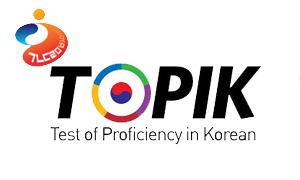
Speaking Korean – A TOPIK For Discussion
If you are anything like me, then one of your New Year’s Resolutions was probably to try to learn a bit more Korean. If you are slightly more like me, then this might well be about the 5th or 6th time you’ve made the same pledge with not much to show for it. Now that I’m actually back living in Seoul though I think it’s time to bite the bullet and start studying properly. If nothing else, it might save me the embarrassment of my three-year-old daughter speaking better Korean than me and constantly reminding me that ‘Daddy doesn’t know Korean’.
With that in mind, I decided I would kick-off 2015 by taking the official TOPIK (Test of Proficiency in Korean) test to benchmark just how bad my Korean is and with the goal of improving at least a couple of levels during the year. That’s was how I found myself at Dongguk University last weekend looking confused and guessing randomly at dozens of multiple choice questions for a couple of hours.

Sadly Korea’s TOPIK has nothing to do with one of these, is not covered in chocolate and contains no peanutty or caramelly goodness.
For those who don’t know, the TOPIK is the Korean equivalent of TOEIC or TOEFL – a test designed to grade your capability in Korean for use in official matters such as university applications. In some cases, immigration will also require a certain TOPIK level in order to demonstrate language capability. You can find out more at www.topik.go.kr where they have information in English, Japanese, Chinese and, of course, Korean.
The grading system for the test is divided into 6 levels (Appropriately named Level 1 – Level 6 with Level 6 being the highest) and there are actually two different tests which students can take. The TOPIK I (which is a basic reading and listening test for Levels 1 and 2) and TOPIK II (which is for Levels 3-6 and includes more reading and listening as well as essay writing). A students level is then determined based on the overall score – so, for example, Level 1 requires 80/200 points in TOPIK I while Level 2 requires 140/200 in the same test.
You can apply for the test online, though if your Korean isn’t great you might need some help, as I found that the application information only seemed to be provided in Korean. It also involved the usual rigmarole with any Korean online payment system so you have been warned if you end up pulling your hair out in frustration. The fee per test is 40,000 KRW – so it’s not too expensive – but if you take both tests on the same day you will have to pay two registration fees.
The test runs about half a dozen times a year in Korea and is also offered at testing stations around the world on a less frequent basis. You can take the test at one of 34 locations around Korea – mostly at universities – at there is a reasonable spread across the country, from Gangwon to Jeju, though the largest concentration are in Seoul and Gyeonggi-do as you might expect. You do need to book in advance, the application period normally opens about 6 weeks or so before the test and runs for two weeks. My own experience suggested that the TOPIK II tends to fill up quite quickly so you probably want to book early for that or if you have a specific location in mind to take the test.
As for the test, well I took the TOPIK I so I can only speak from experience about that. It runs for an hour and forty minutes and is divided into 2 sections – a 40 minute listening test with 30 questions worth 100 points in total and an hour long reading section with 40 questions also worth a total of 100 points. The tests start off fairly basic but they do ramp up in difficulty towards the end and I found the test fairly challenging overall.
How did I do in the end? Well we need to wait and see as it takes nearly a month to get the score apparently. I’m hopeful at least of getting a passing grade at Level 1 with a little bit of luck. Level 2 seems quite a way off though. A lot more work is required in the coming months if I’m to get to my goal of Level 3 or 4 by the end of the year. I probably should crack open the books.
I’d be interested to hear your opinions if you have taken the TOPIK – especially if you have experiences of TOPIK II to recount. How did you find it? Any hints or tips on studying for the test or good study materials? I’d also be keen to find out how else people are improving their Korean? Any good courses to recommend? If all else fails I may just get my toddler to teach me!

